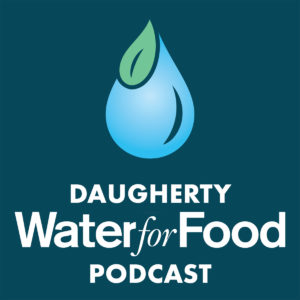 DWFI Faculty Fellow Karina Schoengold is leading a $6 million, 4-year project to reduce the use of plastics, herbicides and associated environmental impacts in agricultural production. The use of plastics has been growing in agriculture over recent years to help increase productivity by limiting weeds, protecting growth and extending growing seasons. The team aims to create a bio-based material called BioWRAP — Bioplastics with Regenerative Agricultural Properties — which can be sprayed onto the fields. The material will then break down and add to the nutrients of the soil as a bio-based fertilizer. Once the technology is created, the team will measure the effectiveness under different conditions, as well as soil impacts such as runoff, sedimentation, erosion, water filtration and any water quality impacts that would occur from using it.
DWFI Faculty Fellow Karina Schoengold is leading a $6 million, 4-year project to reduce the use of plastics, herbicides and associated environmental impacts in agricultural production. The use of plastics has been growing in agriculture over recent years to help increase productivity by limiting weeds, protecting growth and extending growing seasons. The team aims to create a bio-based material called BioWRAP — Bioplastics with Regenerative Agricultural Properties — which can be sprayed onto the fields. The material will then break down and add to the nutrients of the soil as a bio-based fertilizer. Once the technology is created, the team will measure the effectiveness under different conditions, as well as soil impacts such as runoff, sedimentation, erosion, water filtration and any water quality impacts that would occur from using it.
In this episode, Arianna Elnes, DWFI communications specialist, interviews Karina about the goals of the project, the economic and social impacts of the technology and its future potential for agriculture and the environment.
Listen here or subscribe on your favorite podcast platform:
DWFI Podcast 17 - Karina Schoengold, UNL Agricultural Economics 12:09
The Robert B. Daugherty Water for Food Global Institute (DWFI) at the University of Nebraska was founded with the mission to have a lasting and significant impact on achieving more food security with less pressure on scarce water resources by conducting scientific and policy research, using the research results to inform policy makers, and sharing knowledge through education and communication.
How to subscribe:
